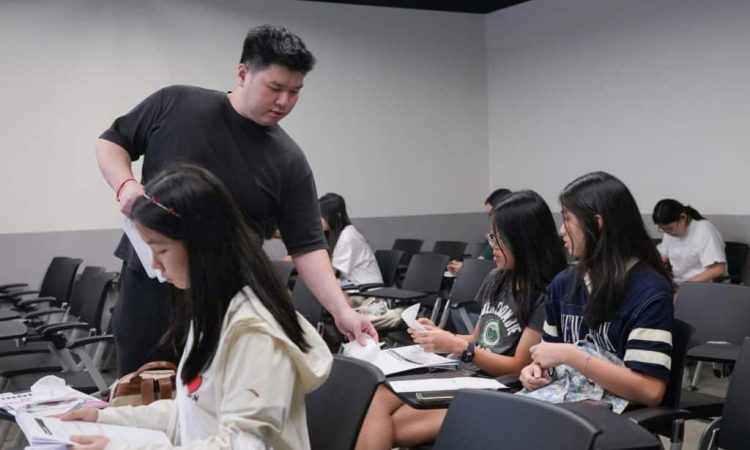
IP Maths Tuition Singapore is not just another phrase in the growing marketplace of academic services; it is a reflection of how seriously the nation treats education as infrastructure. In a city-state where opportunities are tightly bound to academic performance, the Integrated Programme (IP) is not merely a curriculum but a pathway to the most competitive universities and careers. And mathematics, demanding, unforgiving, essential, sits at its centre.
The Pressure of the IP System
The Integrated Programme was designed to give high-performing students a head start, bypassing the O-Level examinations and preparing directly for the A-Levels or International Baccalaureate. In theory, it offers freedom. In practice, it intensifies pressure.
Mathematics in the IP stream is not a steady climb but a steep ascent. The syllabus often stretches students beyond their comfort zones, requiring them to absorb concepts quickly and apply them across disciplines. For those who falter, the consequences can be significant. The numbers may look like equations on a page, but in reality, they are markers of opportunity gained or lost.
Why IP Maths Tuition Matters
A professional tuition programme is not simply about memorisation. It provides strategies to survive, and more importantly, to thrive in an unforgiving system. The benefits extend beyond better test scores:
- Conceptual clarity: Students are guided to understand the principles behind formulas rather than rote application.
- Problem-solving skills: Tuition sharpens analytical ability, helping students tackle unfamiliar or higher-order questions.
- Time management: With guidance, students learn to navigate challenging papers under time constraints.
- Confidence: Beyond marks, effective tuition builds resilience in facing complex mathematical ideas.
As one education review in Singapore noted, “Tuition is not only a supplement; it has become, for many students, a lifeline.”
The Singapore Context
Singapore’s academic environment is famously competitive. Parents often see tuition not as an option but as insurance, protection against failure in a high-stakes system. This cultural context matters. While critics argue about over-reliance on extra lessons, supporters point out that tuition provides personalised instruction that schools, burdened by large class sizes, cannot always deliver.
In this sense, ip Maths tuition reflects more than individual ambition. It embodies a collective anxiety, one that insists no child should fall behind in a system where falling behind can mean falling out altogether.
The Ethical Question of Access
There is, of course, an ethical undertone to the rise of tuition. Families with greater resources are able to secure more support, creating disparities in outcomes. In a society committed to meritocracy, the existence of parallel systems of advantage raises uncomfortable questions.
Yet the demand persists, and it grows. The reality is that many students cannot manage the IP mathematics syllabus without additional help. To ignore that need would be to ignore the structure of the system itself. Tuition has become not only supplementary but, in some cases, essential.
Practical Benefits of Structured Tuition
For parents and students considering IP Maths tuition, there are several tangible advantages:
- Customised learning plans: Tutors can adapt to the pace and style of individual students.
- Exposure to exam techniques: Students learn how to decode questions and avoid common pitfalls.
- Regular assessments: Feedback highlights gaps before they become failures.
- Supportive environment: Tuition often provides encouragement that schools, stretched thin, may struggle to offer.
This combination of structure and flexibility is why families continue to turn towards tuition, even when costs are high.
The Human Dimension of Struggle
Every statistic about grades hides a human story. Behind the need for tuition are students who feel overwhelmed by formulas, parents who worry about futures, and teachers who know the syllabus may outpace some learners.
In Singapore, where education is framed as survival, a single misstep in mathematics can feel catastrophic. One parent was quoted in a local forum: “It’s not about pushing my child to be the best. It’s about making sure she doesn’t drown in a system designed for the strongest swimmers.” Tuition, in this light, is less about ambition and more about endurance.
Balancing Academic Rigor with Wellbeing
There is a growing concern that too much emphasis on tuition robs students of independence, creativity, and rest. But when done well, tuition can also restore balance. It can transform overwhelming content into manageable steps, reducing anxiety rather than adding to it.
The best tuition is not a treadmill but a scaffold. It supports students until they can climb on their own. In this way, IP Maths tuition can be reframed not as a crutch but as a bridge, from confusion to clarity, from fear to competence.
Conclusion
Mathematics is both the language of logic and the gatekeeper of opportunity in Singapore’s Integrated Programme. For many, the challenge of mastering it requires more than school lessons alone. The rise of tuition is not accidental but systemic, rooted in the demands of an unforgiving curriculum and a culture where education is survival.To succeed in this system is not simply to pass but to endure and excel. And for families determined to see their children navigate this path, the most effective support remains ip Maths Tuition Singapore.



